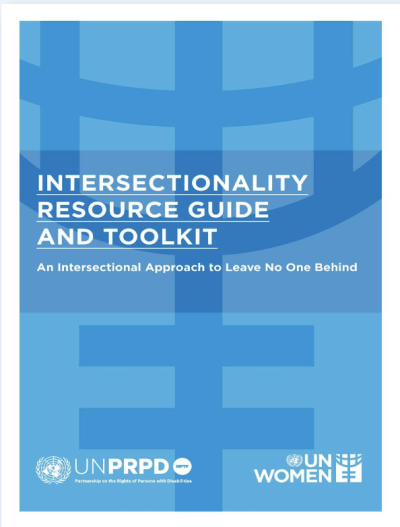
- Report year:2024
- Organisation: United Nations Women
There is growing recognition that structural barriers and rising inequalities must be addressed in order to achieve the international agreed development goals, the Sustainable Development Goals (SDGs) pledge to leave no one behind, and nationally agreed targets. The COVID-19 crisis has amplified this need as those experiencing intersectional discrimination face disproportionate impacts in terms of access to health care, risk of violence, unemployment, and wellbeing.
Intersectionality can go a long way towards addressing these inequalities. With growing recognition that failure to address complex social systems and identities can obscure or deny the human rights protections due to all, it is crucial to design programmes and policies that effectively address not only discrimination based on disability but the situation of those affected by all forms of compounded and intersecting forms of discrimination.
Intersectionality can go a long way towards addressing these inequalities. With growing recognition that failure to address complex social systems and identities can obscure or deny the human rights protections due to all, it is crucial to design programmes and policies that effectively address not only discrimination based on disability but the situation of those affected by all forms of compounded and intersecting forms of discrimination.
